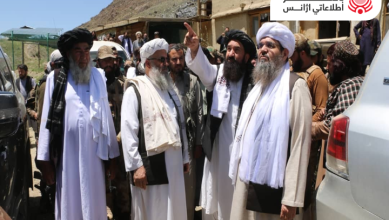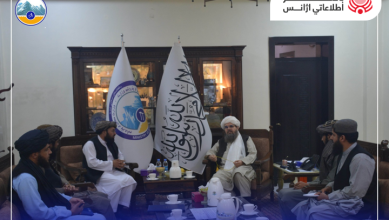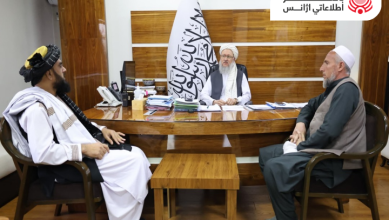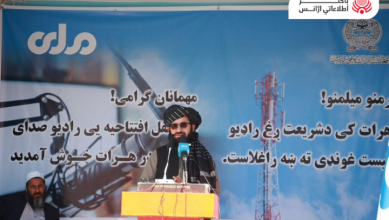
Sunday May 7, 2017
Kabul (BNA) 2017 world ranking has been darker than ever and press freedom has never been threatened like this before.
Afghanistan, a nation embroiled in conflict, has managed to hold its place in world press freedom rankings even as fighting takes a heavy toll on journalists. Recent report of reporters without border suggests that a number of Taliban dominated provinces has turned to black-holes of awareness, in which the journalists and media are not free to work. In-charges of journalists’ supporting organizations are concerned on increasing violence against journalists, censor, lack of access to information and job safety. During a National Media Conference on Journalists Safety and Security, a member of Afghanistan journalists’ national union, Fahim Dashti said nothing considerable has been done in term of journalists’ safety and security over the last fifteen years. According to him, lack of safety, threatening media by the government armed oppositions and some government high-level officials in the capital and other provinces, applying taxes by the ministry of finance and lack of retirement rights and insurance are among the greatest challenges before media family in Afghanistan.
The government of Afghanistan in cooperation with media outlets and media supporting entities has approved the procedure on ensuring journalists’ security and safety, based on which, joint committees have been established in the capital and other provinces of the country. Second Vice President, Sarwar Danesh is the chairman of the committee. Dashti added that still no step has been taken on journalists’ murder and violence cases. Journalists alongside the security forces endanger their lives and make effort to inform the people on events and incidents going on in the country, but they have always been facing murder and other types of violations, Dashti went on to say. Besides, media worse economic situation is among the problems that has caused almost 70 media outlets to cancel their activity permit last year, because they cannot work. 2016, a bloody year: According to released figures, 2016 had been a deadly year for journalists in Afghanistan, during which 14 journalists had been killed. In a report, Nai-Supporting Open Media in Afghanistan said it has recorded 415 cases of violence against journalists in 2016, during which 14 journalists had been killed, 23 journalists had been injured, 43 journalists had been beaten, 38 journalists had been threatened and some 33 journalists had been faced short-term imprisonment.
The spokesperson to Attorney General Office, Jamshid Rassouli said 679 cases of violence against journalists have so far been reviewed. Access to Information: Members of media supporting entities have always complained about lack of journalists’ access to information. According to Rahimullah Samandar, the journalists don’t have access to information. Likewise, Helmand, Uruzgan, Ghazni, Farah, Kunduz, Baghlan, Nangarhar, Badakhshan, Kandahar, Takhar, Zabul, Sar-e-Pul, Logar, Kunar and Nouristan are redlines for journalists, where they have always been facing with threats. At the same time, UN Secretary-General’s Special Representative for Afghanistan, Tadamichi Yamamoto said “Afghanistan’s media professionals, who continue to work against immense challenges, are to be commended for their courage and determination.” Mr. Yamamoto went on to note that progress has been made in Afghanistan even as there has been an erosion of media freedoms in some traditional democracies. “In the region,” he said, “Afghanistan stands out as a leader in openness and creativity.” During the conference, Chief Executive, Dr. Abdullah Abdullah said that freedom of speech, media and journalists achievements were not irreversible and mass media power would not stop by a word or a move. National Media Conference on Journalists Safety and Security has been held by Afghanistan’s Journalists Federation for two days in Kabul which was attended by media outlets’ managers and journalists from Kabul and other provinces of the country.
Lailuma Noori




